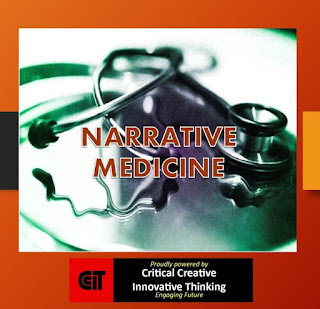Is He in the Emergency Room to Sleep? By Walid Farooqi (guest writer)
 |
| Photo-credit: Saniya Kamal, AKU MBBS '18 |
“Is
he in the Emergency Room to sleep?”- These words still
resonate in my head. These words still affect me. They still cut deep into me
and make me question the very basis of why I chose my profession. Times like
these are when you understand the bitter truth of reality; of what medicine is.
When I took the Hippocratic Oath 5 years ago, I had no idea. I had no idea of
the position I was going to hold; of how many lives I was going to touch; of
the power my white lab coat inherently held. I now understand.
“Is
he in the Emergency Room to sleep?” – These words not only
show how important we are in society, but also how important we think we are. Across
the country, working in the emergency room automatically offers immunity to
medical personnel to do almost whatever they want, however they want, all under
the rather overly used banner “we’re trying our very best”. Is this true? Or is
this a façade? Do we care more about what we treat or who we treat?
“Is
he in the Emergency Room to sleep?” – Did our training do
this to us? Did repeated interactions with all the different pathologies we
could think of- common and rare- shape us this way? Did we exchange knowledge
for humanity or compassion (or maybe a bit of both)? Did our monotonous routine
make us into this machine that just doesn’t care? Doesn’t care about the fact
that the kid had come to the Emergency Room with pain? With so much pain that
he could not lie still? And yet, when he did manage to get respite in the form
of sleep, we talked of waking him up; not because we had to in order to help
him, no; but simply because we forgot to do an examination on him that we
should have done when we came in. This raises yet more questions: Did we ever
earn the right to make someone suffer just because of our incompetency? And
instead of being sorry, mockingly joke about the kid sleeping?
“Is
he in the Emergency Room to sleep?” – We health care
professionals are given more respect and autonomy here than anywhere in the
world; here, where you will never see a patient doubt a doctor’s advice for
even a second. Where the phrase “Daktar
sahib, apko jo munasib lagey, ap kijiey”- Doctor, do whatever you deem
necessary (loosely translated) - is so common, its borderline impossible to
give autonomy back to the patients, because they will never in a million years
make a life decision that they themselves have to live with. Why? Because they
believe that we, the doctors, are their saviors, their supermen-in-white. But
maybe that’s the problem. Maybe because we control so many peoples’ lives, we,
in our heads, subconsciously bump our role up from “God-like” to “God”.
“Is
he in the Emergency Room to sleep?” – Speaking of
superheroes, a phrase from yet another one comes to mind: “With great power
comes great responsibility”; the responsibility to help the people looking up
to us for healing them. The emphasis here is on healing them. Not on treating
them. The difference between the two is simple: understanding and taking care
of patients as a whole and as human beings; not just as organic matter with certain
pathologies. Yet in our practice, this simple difference seems to get lost
amidst the huge patient influx during clinical hours. Not more than a handful
of consultant physicians will go out of their way to step into the shoes of
their patients. The situation is even grimmer for the resident doctors. Medicine
is, and always was, meant to be patient-centric. Yet, because of the massive
respect the people have for us, they never question us. This situation begs the
question: Is exploiting this vulnerability of people our only strength?
“Is
he in the Emergency Room to sleep?” – The sad bit was not
that the senior doctor on duty eventually did wake the child up. The sad bit is
that the child was actually glad he was woken up. Glad that people were taking
care of him. Little does he know his comfort and ease means nothing to us.
Because, well, “we have to take care of other patients too”. Most of the
resident doctors will get away with this argument. Could we not have taken care
of the other children, only to come back and examine this kid when he was
awake? Yes we could have. But alas, we all leave compassion outside the
emergency gate when we walk in for our 8 hour duty.
“Is
he in the Emergency Room to sleep?” – Yes, he is. Now let
him be.
CREDITS:
About the Author: Walid Farooqi, AKU MBBS class of 2016, is interested in Pediatric Emergentology.
Editorial Note: This is from a series collected as part of the Narrative Medicine Workshop at AKU on January 20th, 2016. The editorial work was performed by the Writers’ Guild, an interest group at AKU, with the purpose to promote love of reflective reading and writing, within and outside of AKU.
DISCLAIMER: Copyright belongs to the author. This blog cannot be held responsible for events bearing overt resemblance to any actual occurrences.



ReplyDeleteIf you are looking for more information about flat rate locksmith Las Vegas check that right away.
Doctor advice
Really I enjoy your site with effective and useful information. It is included very nice post with a lot of our resources.thanks for share. i enjoy this post
ReplyDeleteNew prescription or renewal